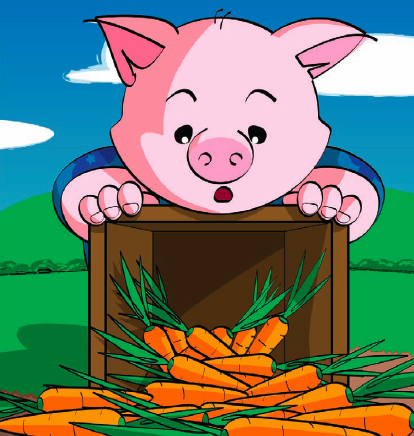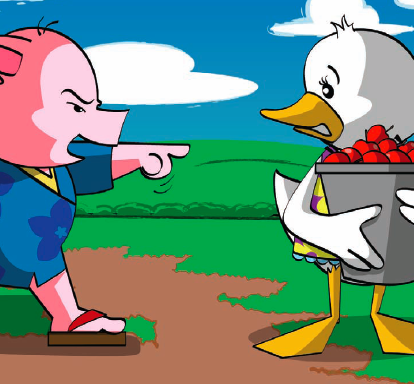
The basic mood from more progressive thinkers is that DRM is a flawed principle. Proponents of DRM say that it helps curb duplication of material, which can lead to lost sales. Opponents, like the Electronic Frontier Foundation, say that it doesn’t achieve this and actually limits artists from reaching consumers. The main argument against DRM is that it is impossible to maintain given the current structure and it is just holding up innovation. Basically, it’s a case of companies holding onto the old model of distribution while the world moves ahead. This is very important to the future of self-publishing.
Cory Doctorow (who gives away his novels away for free in e-form) lays out DRM as such:
1. DRM doesn’t work because hackers can break the system every single time because in some sense the copy protection needs to be broken or else someone who buys the product would not be able to view it him or herself. So it’s wasted energy.
2. So something that is there to cut down on hacking won’t stop advanced hackers, but it will stop average people. On the one hand, this is the argument: it’s there to stop average people from stealing content. The problem is that average people aren’t secretly waiting to be pirates, they just want to be able to access content. He writes:
That’s what happened to Jon Johansen, a Norwegian teenager who wanted to watch French DVDs on his Norwegian DVD player. He and some pals wrote some code to break the CSS so that he could do so. He’s a wanted man here in America; in Norway the studios put the local fuzz up to bringing him up on charges of *unlawfully trespassing upon a computer system.* When his defense asked, “Which computer has Jon trespassed upon?” the answer was: “His own.”
3. It stifles innovation: it links the medium too directly to the player. This is one of the criticisms of the Kindle: that they’re in charge of the both the book and the player, a kind of monopoly that could corner the market. Doctorow’s point is that making proprietary systems for accessing content slows down innovation. The DVD player has remained static, even as there’s new media to play movies, but businesses are slow to integrate the new media for fear of losing their grip on the old model.
4. It limits artists’ chance for distribution, which could actually increase the artists’ profit line, not decrease it, as it increases access to an artists’ work.
The Pig and the Box (finally)
OK, we’ve got the adult stuff out of the way. That may be entirely too turgid an introduction to a book that features a crazy squirrel that screams “Lollipop Jones!” for no apparent reason, but the book’s a parable and DRM’s important.
So here’s the scene: a crotchety old pig gets himself a magic box. He finds that the box can duplicate anything he puts into it. Throw in a carrot, out pops 27 carrots.
Soon animals from the neighborhood come dropping by who all want use of the pig’s fabulous box. Except when each animal uses the box, the pig fixes it so something terrible happens:
“Wait a second!” said Pig, “What are you going to do with these apples? Ducks don’t eat apples.”
“Well—” began Duck.
“You LIE!” shouted Pig, and he got a bucket from his house.
“The apples go in here,” Pig said, “This is a magic bucket. If anyone but YOU tries to take an apple out of this bucket, all the apples will EXPLODE!”
“But but but…” said Duck.
“Go away!” shouted Pig, “I don’t trust you at all!”
He sent Duck away with her bucket full of apples, and went back inside his house to find his pot boiling over.
(What’s awesome is that I was able to cut and paste the text from that page, which isn’t possible with some DRM-protected PDF’s. Case in point why DRM is unnecessary).
Each time an animal wants something, the pig makes something terrible happen. He seems means, that pig. Why not just let the animals enjoy the bounty of the magic computer…er, box? It makes pig seem like an awful spoil sport.
All told, it’s a great message about sharing – not just DRM-style, but sharing in general. And it effectively drives home the message that you should not restrict people’s access to something that’s abundant. Will this open the doors to talking about DRM management with your kids? Perhaps not – and that might just suck the fun out of the book. I can imagine that if you say to your child, “OK, Johnny, now we’re going to talk about digital rights management,” his eyes are going to glaze over.
But you won’t need to have that discussion because it is a good fundamental message about sharing – well told, funny, with amusing computer-drawn illustrations, which add to the overall message. I read it with my 6-year-old daughter and she laughed, especially at the crazy squirrel – no better review than that. Given the fact that kids are growing up in a world in which digital sharing is going to be a major part of how they send and receive all types of information, it’s not premature at all that this should be in a kid’s book.
Read SPR’s interview with MCM. He’s also the creator of the cartoon, Rollbots, soon to possibly become a phenomenon. Favorite part of the interview:
If RollBots becomes hideously popular, I would still rather do my own books. I like the freedom of coming up with an idea, writing it, having it torn apart in editing, and getting it out the door within the month if I choose. Part of it is my general lack of patience, but it’s also a nagging belief that the traditional publishing model is broken, and it’s only the smaller players that can really figure out the solution.
Get a free copy of the Pig and the Box. Then be sure to donate.
Get an Editorial Review | Get Amazon Sales & Reviews | Get Edited | Get Beta Readers | Enter the SPR Book Awards | Other Marketing Services
























Leave A Comment